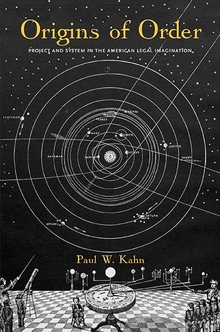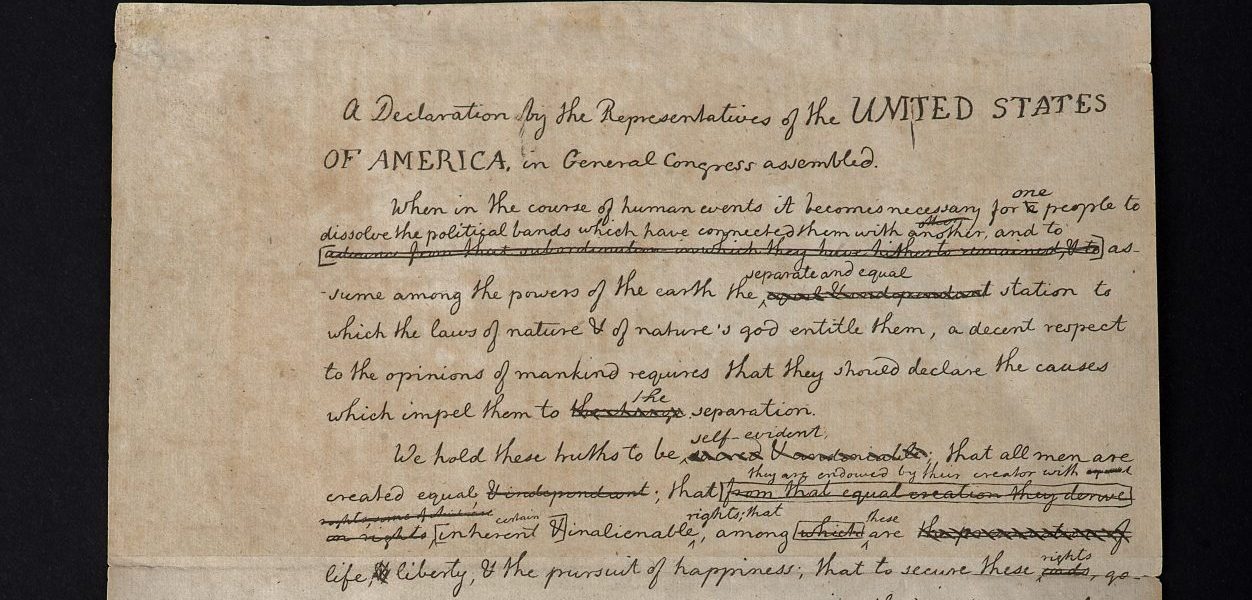The End of Conservatism
Paul W. Kahn—
Project and system are two competing narrative forms that organize the way we imagine the nature of legal order. A project gains its principle of order from the intentional act of a free subject. A system gains its principle of order immanently and spontaneously. To write a constitution or pass legislation, for example, is a project. A market is a system. No one intends the law of supply and demand; rather, that law emerges immanently out of countless individual transactions. The common law is a similar system, with legal principles emerging out of an endless process of individual adjudications. For project, order is always evidence of intention; for system, order precedes intention.
These categories have deep theological roots: project gives us the argument from design for the existence of God; system has been at the heart of every theodicy. The categories have deep roots in everyday experience: project expresses our sense of ourselves as free agents; system expresses our experience of life forms. The human world is full of projects; the natural world is full of organisms that display order without intention. The discovery that society, too, is a site of order without intention led to the development of the social sciences in the nineteenth century.
The same categories can help us to understand the modern conflict between progressives and conservatives. Progressives traditionally approached politics as a domain of projects. They imagined the task of governance as one of constant reconsideration and remodeling of regulatory regimes. For them, to be politically free was to take responsibility for forming the legal order. Justice Holmes captured the progressive idea when he proclaimed, “It is revolting to have no better reason for a rule of law than that so it was laid down in the time of Henry IV. It is still more revolting if the grounds upon which it was laid down have vanished long since.” This is the same sentiment of project that informed the Declaration of Independence, which announced that “whenever any Form of Government becomes destructive of [life, liberty, and the pursuit of happiness], it is the Right of the People to alter or to abolish it, and to institute new Government.”
Conservatives responded that politics is not a project and that constitutions cannot be made. Law is, instead, a slow growth—an organic system that emerges spontaneously and immanently from our practices. A society is far too complex to be the object of a deliberately created order—a proposition made vivid in the twentieth century by the failures of planned economies. Instead of an authored constitution, conservatives pointed to the common law, which emerged from “time immemorial.” Edmund Burke led the conservative charge against the French Revolution’s project of constitutional construction. When Ronald Reagan proclaimed, “government is not the solution . . . but the problem,” he was expressing the same conservative rejection of a politics of projects. That attitude set a modern conservative agenda of deregulation to allow markets and other social systems—e.g., family, religion, and community—to realize their own immanent orders. For conservatives, the only legitimate end of legislation is to remedy systemic failure. Just as individuals get sick and need outside intervention to return to the natural order of wellbeing—health—social systems can develop pathologies—market failures—and require external, remedial interventions.
Does this debate between project and system, dating back to the Age of Revolution, still shape our politics? Progressives remain committed to a politics of project. Look at the field of Democratic primary candidates: the degree of their progressivity is measured by the reach of their projects. Conservatives, however, no longer believe in system. Not even the climate-change deniers believe that a global, environmental system will balance itself. Nor is the deregulatory agenda of this administration driven by a belief in the systemic quality of markets. Tariffs and trade wars are not part of “natural” markets. What about in international relations? Is the administration’s skepticism toward the great twentieth-century projects of creating international institutions—e.g., the UN, the WTO, and the EU—driven by a faith in the systemic quality of balance-of-power politics? That is implausible, when the Administration spends little time tending to allies who would help to align the balance. Conservative Justices do not believe in the systemic virtues of the common law. Rather, they believe in originalism—an interpretive method that looks to the founders’ intentions as they formed the American project.
Contemporary politics, despite the success of a party that purports to be conservative, displays the ideological victory of project over system. A conservatism of system survives today only in well-funded think tanks and among sophisticated commentators. All of the significant participants in politics, with the possible exception of the Evangelicals, share an imaginary of projects. They divide over the issue of whose project it is.
We cannot ask of a system, “To whom does it belong?” Since a system has no author, the question makes no sense. Of a project, we can always ask that question. It belongs uniquely to its author. Progressives think of We the People as the author of the American project. The People are thought to give the law to themselves. Contemporary conservatives of the populist right also believe that politics has been a project with an identifiable author. That author, however, is not We the People. It is, instead, an unrepresentative elite, pursuing their own interests.
Members of the populist right believe they have been the victims of an alien project. To find oneself an object in someone else’s project is a model of subordination as old as slavery. The American revolutionaries—even the slave-owners—described themselves as slaves to the British Parliament. They did not see Parliament’s project as their own. The populist turn of 2016 shares this sense of “slave” rebellion. In office, the new-right agenda has been to dismantle the progressive project not so much because it failed to deliver benefits, but because it was not their own. Yet, these right-wing populists no longer have the conservative belief that systems will flourish in the absence of projects. They are stuck in a world of projects but have few of their own. This leads to a self-reinforcing cynicism about the very possibility of recasting and reforming politics.
We find ourselves living in an era in which project has triumphed over system. The consequence, however, is not unity but bitter division over authorship. Project and system could speak to each other, for each had hold of a truth that escaped the other. The conflicts of our post-systemic political era seem irreconcilable, as if slavery and freedom are at stake. The grievous state of our politics is not the consequence of the political defeat of progressives. It is the bittersweet result of the disappearance of conservative belief in system.
Paul W. Kahn is Robert W. Winner Professor of Law and the Humanities and Director of the Orville H. Schell, Jr. Center for International Human Rights at Yale Law School. He is the author of many books, including Making the Case, Political Theology, The Cultural Study of Law, and The Reign of Law.
Further Reading:



























